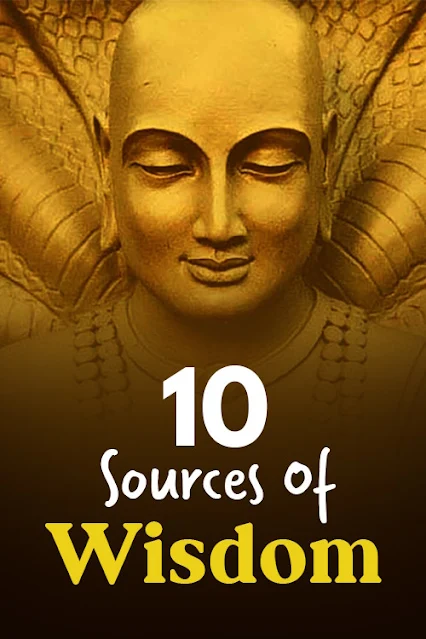“Knowing yourself is the beginning of all wisdom.” ― Aristotle; this quote alone captures the true essence of this virtue, that not everyone has, but those who do are really and truly gifted.
Wisdom is a human strength that leads to well-being and growth. Wisdom can be defined as purposeful seeking to enhance the well-being of the self and of the society. People on the development path toward wisdom are motivated to achieve a common good, rather than optimizing personal gains (Sternberg and Gluck, 2019).
Here Are 10 Sources of Wisdom
1. Open-mindedness.
Openness is considered a typical personality trait of wise individuals. Openness is to think carefully and thoroughly as we face information that may challenge our previous knowledge or beliefs. Openness to experience implies curiosity, imagination, insightfulness, and interest in multiple perspectives. Focusing only on what we already know can limit our ability to think more broadly.
2. Empathy.
Wise people have the ability to see others’ points of view. They have deep concerns for the welfare of others and the common human good.
3. Self-reflection.
Self-reflection is an essential aspect of wisdom and personal growth. Highly reflective individuals are willing and able to question their own views and behavior, non-defensively, as they aim to learn from experience. Reflection helps individuals better understand what they know and do not know as they develop their knowledge.
4. A balanced approach.
Wise individuals skillfully balance interests of their own and others’ interests to reach a common good. For a decision to be wise, it must account for diverse interests and seek to attain a common good.
5. Managing uncertainty.
Highly wise individuals have learned from experience how uncertain, and uncontrollable life can be. They have learned to trust in their own strengths to deal with whatever happens.
6. Wisdom in aging.
As people age, they become less ego-focused and more connected to others and the world at large. Becoming more aware of death leads us to reevaluate what is really important in life and to find external sources of self-esteem, such as fame and money, less rewarding than intrinsic pursuits.
7. Wisdom develops through mastery of crises.
Wise people are able to apply valuable life lessons gained from previous experiences of coping with adversity when confronted with crises and obstacles in their lives.
8. Seeing the bigger picture.
A wise person is not primarily guided by immediate goals of action, rather than the ultimate goal of one’s whole life. A broader perspective makes it easier to put complicating details aside and focus on what seems most important.
9. Purpose.
Having a sense of direction or purpose (meaningful goals for oneself and others) is a significant contributor to the development of wisdom. Purpose in life is associated with emotional stability and resilience during vulnerable and stressful life events.
10. Emotion regulation.
Emotional stability is a necessary component of wisdom. Emotion regulation is the ability to regulate emotions (e.g., when confronted with emotionally charged events) in ways that help us make progress with our immediate and long-term goals. For example, humor can be used to strengthen emotional bonds with others or down-regulate negative emotions.
In sum, wisdom provides the inner resources to deal with adversity and hardship. Wisdom enables individuals to adjust to life circumstances by thoroughly understanding and accepting themselves, others, and the world.
References:
Sternberg RJ, and Gluck J (2019). The Cambridge Handbook of Wisdom. Cambridge University Press.
source:themindsjournal
